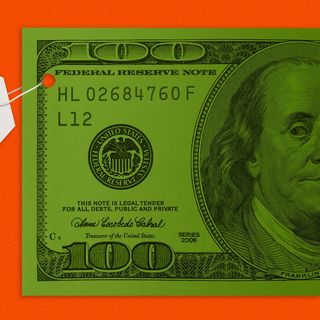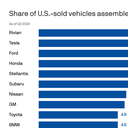Markets flinch on Moody's news
Investors reacted swiftly Monday morning to the U.S. losing its last triple-A credit rating, briefing sending the yield on 30-year Treasuries above 5%.
Why it matters: Credit rating downgrades — like Moody's decision Friday to slash the U.S. government to Aa1 — mean the borrower is now viewed as a riskier bet.
- U.S. Treasuries are still widely regarded as a dependable place to park cash, but long-term bond yields Monday nonetheless touched their highest level since November 2023, and last seen before that in 2007.
Zoom out: U.S. debt is now deemed by Moody's to be a risker proposition for investors than debt issued by a dozen countries.
- Those better bets are Australia, Canada, Denmark, Germany, Luxembourg, Netherlands, New Zealand, Norway, Singapore, Sweden and Switzerland.
What they're saying: "Globally, the downgrade may dent confidence in U.S. Treasuries, traditionally perceived as a safe-haven asset due to the U.S. dollar's status as the global reserve currency," Wells Fargo Investment Institute analysts wrote today in a special report.
- "While demand for Treasuries is likely to remain strong, in our view, reduced foreign appetite — already evident following President Donald Trump's tariff announcements — could exacerbate fiscal pressures," they wrote.
Yes, but: Most buyers of Treasury bonds aren't doing so based on credit rating firms' assessment, however, Axios' Neil Irwin notes.
Reality check: The U.S. had already lost its perfect rating from S&P in 2011 and from Fitch in 2023.
- Some, like Morningstar chief U.S. market strategist Dave Sekera, characterized Friday's Moody's downgrade as largely symbolic, with the issues that led to the downgrade "long in coming, well known, and priced into" the U.S. Treasury market.
The impact: The morning's bond selloff tapered off by the afternoon, with yields on 30-year Treasures settling at 4.91%.
- Stocks finished the day largely in the green, with the S&P 500, Nasdaq and Dow Jones indexes all closing Monday with small gains.
The big picture: For investors today the downgrade "reinforces that [U.S.] fiscal strain is no longer a distant concern," writes Tom Kozlik, head of public policy and municipal strategy at Hilltop Securities.
- "It is unfolding in real time, with significant implications for investor sentiment and policy discussions."







































